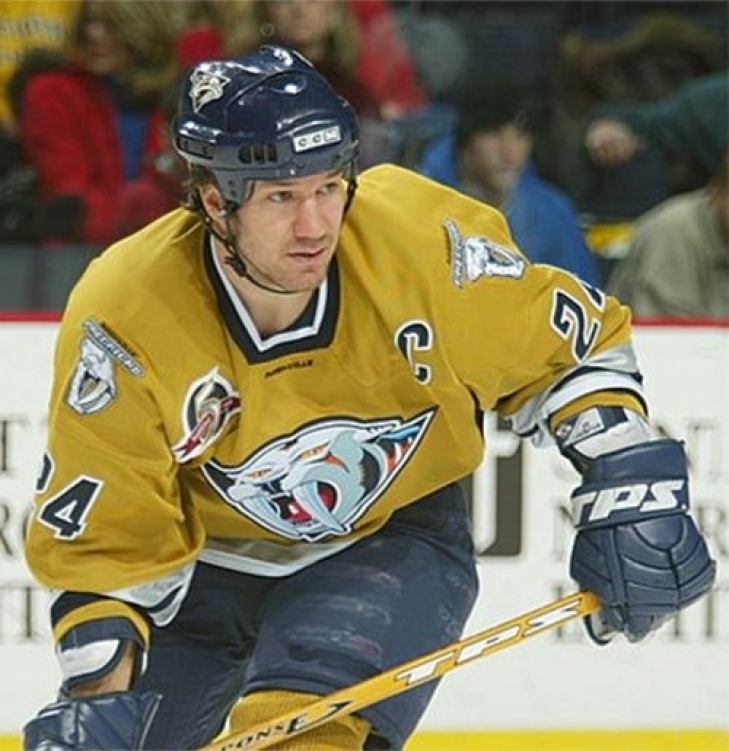
Committee Chairman
34. Mark Eaton
Undrafted players generally don't make the NHL, but Delaware-born Defenseman Mark Eaton defied the odds, making the Philadelphia Flyers a year after signing him. Eaton would then be traded to the Nashville Predators, and he would find his niche as a lockdown Defenseman.
Eaton played for the Predators for five years, scoring only 45 Points, but he performed his role as one of Nashville’s best shot blockers. His best year was in 2003-04, where he had 13 Points and 4.7 Defensive Point Shares, the latter of which was by far his personal best. He signed with Pittsburgh in 2006 and later won a Stanley Cup with the Penguins in 2009.
33. Greg Johnson
Greg Johnson was an original Nashville Predator, having been chosen from Chicago in the Expansion Draft. The Predators would be the last NHL team he ever played for, and by far, where he had his greatest individual success.
Johnson scored a career-high 50 Points and was a stalwart on the penalty kill. He would have two more 40-Point years for Nashville, collecting 238 in total for the Predators, before signing with Detroit as a Free Agent in 2006, though he would never play for them. Notably, 17 of his Points in Nashville were short-handed.
30. Calle Jarnkrok
Calle Jarnkrok, a Draft Pick from Sweden, was traded from Detroit to Nashville before making it to the National Hockey League. As history showed, the Predators were the winners of the transaction.
Playing at Center, Jarnkrok debuted for the Predators for 12 Games in the 2013-14 Season before becoming a full-blown NHL player the year after. Working on the grinding line, Jarnkrok had five 30-Point seasons and helped Nashville reach the 2017 Stanley Cup Finals.
His run in Tennessee ended in 2021 when he was chosen by the expansion Seattle Kraken. With the Preds, Jarnkrok had 211 Points in 508 Games.
29. Scott Walker
Plucked from the Vancouver Canucks in the Expansion Draft, Scott Walker entered the Predators organization with four years of NHL experience under his belt. It was in Nashville where the Right Wing found his greatest success and most time on the ice.
Walker had 40 Points in his first full year in Tennessee (1998-99), and two years later, he broke that with 54. After some injuries, Walker scored 67 Points in 2003-04, his best year in hockey. Walker did not play much more for the Preds, first because of the lockout and second due to injury, and he was dealt to the Hurricanes in 2006.
With Nashville, Walker had 247 Points.





